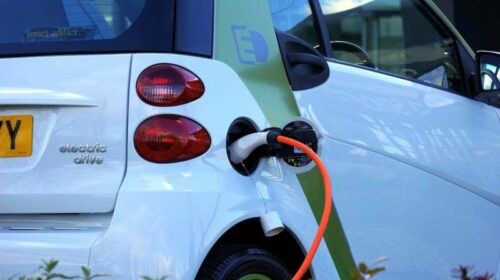Researchers at NTNU explore Solid-state batteries as an alternative to lithium-ion, considering charging speed, safety, and recyclability that promise safer electric cars with enhanced energy storage.

Present-day electric vehicles utilise sizeable lithium-ion batteries that function reasonably effectively. These batteries exhibit a capacity for storing a substantial amount of energy relative to their weight. An advantage lies in their non-requirement for a complete discharge before recharging, offering convenience for recharging at preferred times without undue battery concern. These batteries fall short in energy density for upcoming applications and electric vehicles (EVs). Given their vulnerabilities, their instability and flammability have led to the quest for alternatives.
According to Daniel Rettenwander, a Materials Science and Engineering professor at the Norwegian University of Science and Technology, “solid-state batteries hold promise as the future for upcoming electric vehicles”. He and his research team are delving into ways to expedite the charging process of solid-state batteries beyond current capabilities and enhance their safety and recyclability. These batteries offer several distinct benefits over lithium-ion batteries. They boast the potential for elevated voltage and greater energy capacity, providing enhanced energy storage relative to their weight and volume.
Solid-State Battery Benefits
Their heightened tolerance to temperature fluctuations renders them especially advantageous during cold mornings or extended journeys. These batteries exhibit reduced flammability, owing to the absence of liquid electrolytes—charged conductive substances found in conventional batteries. In contrast, solid-state batteries employ solid materials, deviating from the more prevalent liquid electrolyte norm. These batteries find utility in pacemakers and portable electronics, where compactness is paramount. The ease of crafting small batteries underscores their availability in the market, albeit on a limited scale. Scaling up to larger batteries is challenging due to exorbitant production costs rooted in their intricate manufacturing.
Researchers highlight solid-state batteries’ use of lithium, which influences their failure and breakdown. This insight illuminates the formation of “dendrites,” corrosive lithium particles triggered by mechanical stress. These particles can lead to short circuits, presenting a challenge in solid-state batteries.
The research team suggests that solid-state batteries have the potential for faster charging compared to the present. Yet, a challenge exists: utilising solids for electrical charge transfer is inherently more complex than liquids. They have delved into strategies for enhancing the efficiency of charging solid-state batteries with significantly higher currents. This advancement could substantially curtail the charging duration for electronic devices and electric vehicles (EVs) equipped with these innovative batteries. Solid-state batteries are more expensive than lithium batteries, but this may change when mass-produced.








